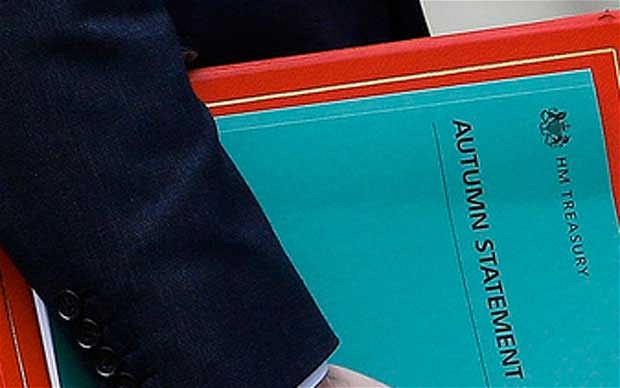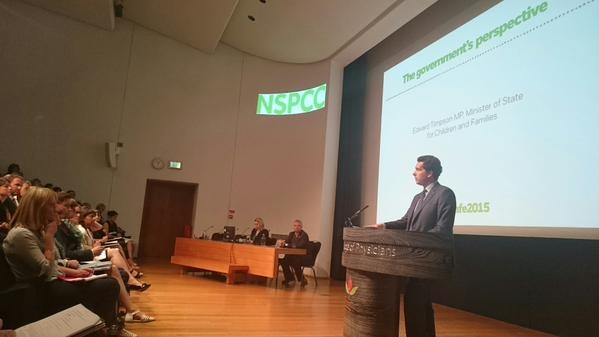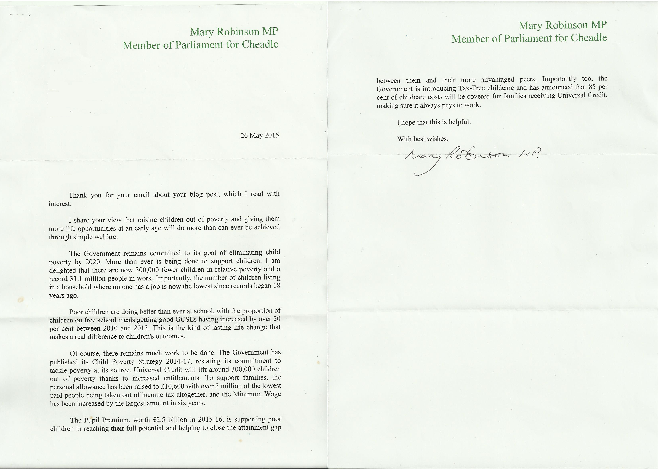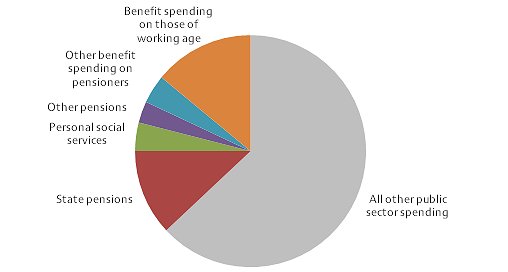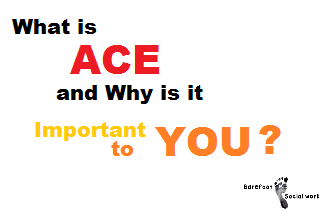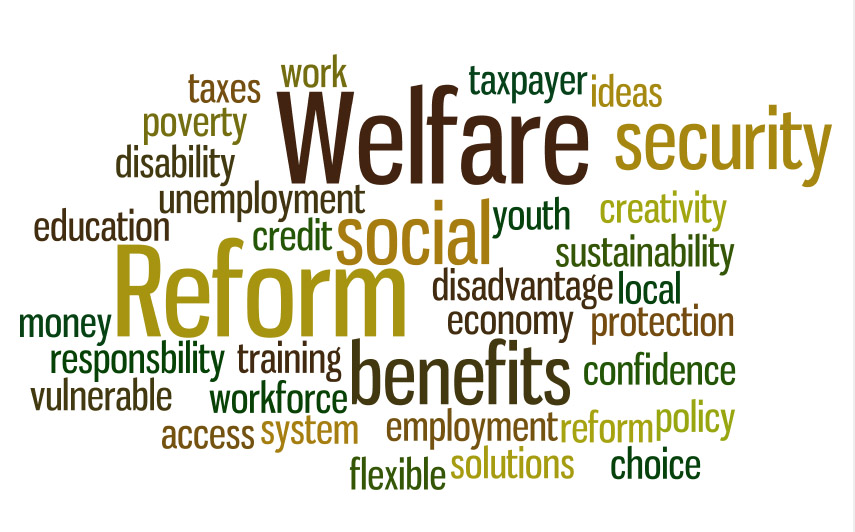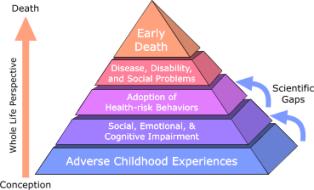|
Today was the day George Osborne revealed his much anticipated, forewarned and feared Autumn Statement and Spending Review. Below I have summarised the key items I find particularly relevant to those working with children and families (I like lists and bullet points). I haven't added any analysis or comment yet but hope to put something together soon.
EDUCATION
*I’ll update this post as more details are revealed.
0 Comments
As some of you will already know, I am a Social Worker and Blogger here at Barefoot Social Work . I am particularly interested in adverse childhood experiences and finding ways in which children and their families can be supported to mitigate their negative long term affects. I am passionate about supporting children to remain in the care of their family and I believe strongly that local services should be available to make that happen. That is why I am particularly concerned (and have blogged) about austerity and the impact this will have on vulnerable children and their families. I believe Social Workers should help shape the political debate about issues that affect the people we support. We can do this in a number of ways: private conversations, engaging with media outlets, campaigning, petitioning and social research (to name a few).
Last week I was offered the very exciting opportunity to undertake a Phd at Manchester Metropolitan University. My study will look at 'Enabling Families in Austere Times' and will include a detailed ethonographic exploration of Home Start in England. The austerity narrative dominates the shaping of social care services and families’ experiences of care within Britain. Anxiety and insecurity are prevailing aspects of contemporary life and research highlights the negative impact on low and middle-income families. Government policy and the recent conservative budget increasingly emphasises the importance of ‘good’ parenting, with parents being expected to be responsible citizens, bear the impact of austerity measures, and take the blame for a myriad of societal issues. Third sector organisations play significant roles in the delivery of social care, particularly within a landscape of welfare state retrenchment and pressure on support services. However, there are significant gaps in empirically-based research that clarifies the distinctiveness of organisations. Home-Start has been the focus of limited research focused on enhanced children’s school readiness (Love et al., 1976) and improvements in children’s behaviour (Hermans et al., 2013). Existing research does not focus on the role that Home-Start performs in local communities, the diversity of families or the experiences of volunteers. In 2014 my research supervisor, Jenny Fisher and colleagues, undertook a small-scale evaluation of Home-Start Manchester South. This identified that they provide an invaluable support for families experiencing difficulties across South Manchester through the role of volunteers. The main aim of my research is to build upon the previous research and interrogate the impact of Home-Start on families in austere times. This will develop an empirically and theoretically sound understanding of family support and characteristics of Home-Start in supporting families. If you have followed the news around Kids Company over the last couple of weeks you will understand how important it is that organisations are accountable to those that invest personally and financially, and are able to evidence outcomes and efficacy. I am very excited about this opportunity and I am honoured that Manchester Metropolitan University and Home Start are supporting this research. I will start in September and would really appreciate your support. Please take a look at my fundraising page. If anyone is interested in following the progress of my research, I will be posting regular updates on my blog . Please follow me on twitter and facebook . Thank you x Today Edward Timpson, Children and Families Minister, addressed the NSPCC conference about how social work reform and innovation can help better protect vulnerable children. He became a Member of Parliament in 2008 after winning a by-election in the constituency of Crewe and Nantwich. In September 2012, he was appointed as a Parliamentary Under-Secretary of State at the Department for Education, and following the 2015 general election, he was promoted to Minister of State for Children and Families.
You can see the whole speech here, but I've summarised/quoted the main points below. He started his speech with a little self-deprecation, saying how thrilled and surprised he was to be back in office, before drawing attention to his own upbringing, in a household with adopted and fostered siblings, and his work with children in care. He says he believes “the protection of vulnerable children… [is] the most profound responsibility we have as a society". He said that during the last parliament he had worked to “strengthen the child protection system… with major reforms to social worker recruitment and assessment”. Also “the first independent children’s trust in Doncaster”, he claimed, are “freeing up local authorities so that they can set up new models of delivery”. Child sexual abuse and NSPCC report Referring to investigations in Rotherham, Rochdale and Oxford he said: “we’ve been able to shine a light on a police and social care system set up to protect children, but that all too often turned them away, leaving them in the hands of callous abusers”. He also said that “the Prime Minister has appointed Karen Bradley as a minister in the Home Office to tackle [CSE] alongside [him] - recognition that child sexual abuse is about child protection... but also about prosecution too”. Centre of Expertise Timpson reported that a “new Centre of Expertise” will try “to understand what works when it comes to tackling and preventing child sexual abuse”. In addition, he acknowledged “that while CSE is dominating the media, we must not lose sight of neglect”. That’s why, he said, they’re “looking at having a campaign to encourage the public to report all forms of child abuse and neglect”. Social work reform “At the heart of good child protection is, of course, good social workers”. He said that “the introduction of a new assessment and accreditation system for children’s social workers” will offer “a rigorous means of assuring the public that social workers…have the knowledge and skills needed to do the job”. His department will also continue to support “projects to bring the brightest and best into social work through Step Up to Social Work and Frontline”. Innovation programme Timpson said that he was “especially keen to see much closer working between the voluntary sector and local authorities - something the Children’s Social Care Innovation programme is encouraging and seeing take root.” There’s a “£1.2 million initiative with SCIE - The Social Care Institute for Excellence - that aims to help us learn better from serious case reviews (SCRs) and improve their quality, and which includes a pilot to improve how SCRs are commissioned”. There’s also a “£1 million funding for the NSPCC to introduce the New Orleans intervention model in south London - which aims to improve services for children under 5 who are in foster care because of maltreatment by promoting joint commissioning across children’s social work and CAMHS teams.” Character and resilience Timpson’s “brief has been extended to include character and resilience”, placing “a greater emphasis on helping children… develop the qualities and life skills that will give them a strong foundation for social life”. He told the audience of social care professionals that “there’s a need to get better and smarter about how we equip our sons and daughters with the attributes they need to find their feet today and truly flourish.” He concluded his speech by asserting that he is a “pragmatist and simply [wants] to do what’s best by and for children, wherever they are and whatever their circumstances.” On 11 May 2015 I wrote a blog post entitled ‘welfare isn’t just about being a decent human being’. It was mainly about the impact of adverse childhood experiences and the need for the government to invest in a more preventative approach. I was encouraged today to receive a letter from my newly elected Conservative MP, Mary Robinson, in response to the concerns I outlined. She stated that she shared my “view that raising children out of poverty and giving them more life opportunities at an early age will do more than can ever be achieved through simple welfare”. I think that is the heart of the problem. Welfare isn’t simple. "Welfare" spending, according to the government’s public expenditure statistical analyses, accounts for 25% of the total and is defined as "social protection". It includes £28.5 billion on "personal social services". It includes spending on a range of things, such as looked-after children and long term care for the elderly, the sick and disabled. Unlike other elements of "social protection" it is not a cash transfer payment and in many ways has more in common with spending on health than spending on social security benefits. Another £20 billion of the spending counted under welfare is pensions to older people other than state pensions. That includes spending on public service pensions – to retired nurses, soldiers and so on. In addition to state pensions a further £28 billion is spent on pensioners, of which £15 billion goes on benefits specifically for that group, such as pension credit, attendance allowance and winter fuel payment, while the remaining £13 billion is largely spent on housing benefit and disability living allowance. So of the £205 billion or so spent on tax credits and social security benefits about £111 billion is spent on those over pension age and £94 billion on those of working age. The welfare state has changed a lot over the years and it is easy to lose sight of the principles upon which it was founded. Welfare, in my mind, is not just about cash payments but a whole system that works to protect and care for its citizens. In 1942, the Liberal politician William Beveridge, who the government set the task of discovering what kind of Britain people wanted to see after the war, declared that there were five "giants on the road to reconstruction": poverty, disease, ignorance, squalor, and idleness. To defeat these giants, he proposed setting up a welfare state with social security, a national health service, free education, council housing and full employment. Whilst the needs of the nation have changed over the years the general premise is still tangible in the Liberal Democrats constitution: no one shall be enslaved by poverty, ignorance or conformity.
Here are my thoughts in response to the points raised by Mary Robinson MP in her letter: 'The Government remains committed to its goal of eliminating child poverty by 2020' According to Mrs Robinson, the government remains committing to not just reducing but eliminating child poverty by 2020. This is a tall order for any government, particularly when all the current research points to increased child poverty by 2020. The Joseph Rowtree Foundation estimates that by 2020 one in four families will be in poverty and if this were to happen it could cost the UK £35bn in today’s terms. '300,000 fewer children are in relative poverty' While one measure suggests Mrs Robinson is right, another can as easily be used to say she’s wrong. There’s no single definition of ‘child poverty’ in the UK. Official bodies measure it in three main ways. The first, takes a certain ‘low’ level of income and counts how many children live in households at or below that level. The second finds out the ‘middle’ income nationally and counts children who live in households earning less than 60% of it. This is known as the ‘relative’ poverty measure and is the one the Mrs Robinson was referring to. The other way is to count children in families which have poor living standards. For example, where there’s no safe place to play outdoors or they can’t afford things like school trips. So, there are 300,000 fewer children living in ‘relative’ poverty but this isn’t always a useful measure. As the government itself has conceded, when everyone’s income falls, this can mean poverty falling as well, which isn’t very intuitive. 'A record 31.1 million people in work' This latest round of figures put the employment rate at 73.5 per cent, it’s highest since records began in 1971. However, of the current 31.1 million working people in the UK at the end of March, only 53% are full time employees on someone’s payroll. The other 47% are what are referred to as ‘Self Drive Workers’ who are not dependent on one employer for their total income. In broad terms, this 47% have to find their own work. The UK has been moving away from this traditional work model for some years - and now it has become significant. Furthermore, data also shows us that there were 697,000 people on zero hour contracts in October-December 2014, compared with 586,000 in October-December 2013. The proportion of workers on a zero hour contract in October-December from 2000-2012 was under 1%. In 2013, it hit 2%. In 2014, it was 2.3%. A provision in the Small Business, Enterprise and Employment Act 2015, which was passed under the Liberal-Conservative coalition government and came into force on 26 May 2015, intended to ban clauses that allow employers to block zero-hours employees from holding jobs elsewhere; however, it has been described as toothless by lawyers. 'Poor children are doing better than ever at school' Research shows that of those eligible for free school meals in 2008/09, 73.3% did not achieve at least 5 GCSEs A* to C (including English and Maths) compared to 45.5% of pupils not eligible for free school meals. In 2013/14, 63% did not achieve at least 5 GCSEs A* to C (including English and Maths) compared to 35.8% of pupils not eligible for free school meals. However, the Joseph Rowtree Foundation warns that it is not possible to directly compare 2013/14 figures with earlier years due to the changes in methodology. Nevertheless, I would credit some of the improvement, whatever it might be, with the introduction of the pupil premium. 'The Pupil Premium is supporting poor children in reaching their full potential and helping to close the attainment gap' While, there is no doubt that the pupil premium was included in the Tory manifesto before the 2010 election, it has widely been accepted that the idea for an additional sum of money to go to students in receipt of free school meals not only came from the Lib Dems, but was the idea of Deputy Prime Minister Nick Clegg. Indeed, it is understood Mr Clegg first put forward the idea of a pupil premium back in 2002. 'The personal allowance has been raised to £10,600' Raising the personal allowance was a Liberal Democrat red line in 2010, which they delivered despite David Cameron telling the nation it was ‘unaffordable’. Indeed, increases in the personal tax allowance have improved the circumstances for many families in in-work poverty, but the most recent increase will not help those most in need who already have earnings below the tax threshold. Furthermore, under Universal Credit, 65% of any additional income recipients get from an increased tax allowance they will lose through reduced entitlement to Universal Credit. In March, the Chancellor set out in his budget the path of income tax bands from 2015/16 to 2017/18; raising the personal tax allowance to £11,000, and the higher rate threshold, to £43,300. This sounds great, but because tax bands are up-rated by inflation anyway, delaying the £11,000 by two years substantially reduces the benefit to taxpayers. In the absence of any policy intervention, the personal tax allowance would be expected to rise to around £10,760 in 2017/18 anyway. This means the announced measure is a rise of just £240, and a benefit of £48 in reduced tax for basic rate taxpayers, rather than the £80 they would receive had it been implemented this year. Conversely, the rise in the higher rate threshold is £400 higher than where it would fall if increased in line with inflation. Universal Credit will lift around 300,000 children out of poverty thanks to increased entitlement Universal Credit is a single monthly payment for people in or out of work, and will merge together some of the benefits and tax credits that they might be getting now. Universal Credit was launched in October 2013 with a gradual transition to be complete by 2017, replacing:
The good news is that it’s supposed to be simpler and there are no limits on how many hours a week people can work if they’re claiming Universal Credit. Instead, the amount they get will gradually reduce as they earn more, so they won’t lose all their benefits at once. You can find out more at the Money Advice Service. It is thought that Universal Credit will lead to an increase in employment due to improved financial incentives, simpler and more transparent system, and changes to the requirements placed on claimants. Overall, it is said, this could lead to the equivalent of up to 300,000 additional people in work from improved financial incentives. This is not the same as lifting 300,000 children out of poverty. There is cross-party support for the theory behind the benefit, but its delivery has been delayed and criticised. Unite union has claimed that it creates a division between a "deserving" and an "undeserving poor". In its initial estimate of the new system, the Institute for Fiscal Studies have said that the poorest are likely to do better, especially couples with children. However, the second earner in a family is likely to lose out in the long-term in many cases. Some charities have argued that, because of a broad-brush approach that universal credit takes, those with more complex benefit claims may lose out, such as some people with disabilities who go to work. Also, those without a bank account, or who do not have internet access, will have to seek advice to prepare for the new way this benefit is run and paid. Minimum wage increased by the largest amount in six years The 2014 increase in the adult rate lifted the real value of the minimum wage for the first time in 6 years through the biggest percentage increase since 2008. Great! Speaking at the Liberal Democrats party conference in Glasgow on 14 September 2013 it was Vince Cable that pressed for an increase in the minimum wage amid concerns that the lower-paid workers were still not benefiting from the “burgeoning economic recovery”. George Osborne on the other hand spoke on the 10 January 2014 to warn that a “self-defeating” increase to the minimum wage could cost jobs. Thankfully, on the 16 January 2014 he had a change of heart. Perhaps it was the Lib Dems that told him the “economy can now afford” to raise the rate? I agree that “there remains much work to be done”. The Joseph Rowntree Foundation is currently developing an anti-poverty strategy for the UK. As a part of this four year programme they have undertaken a review of effective strategies across the EU to determine their key characteristics. This review suggested that key to an effective strategy are clear mechanisms of responsibility and accountability, implementation plans and a monitoring and review process. It also found that clearly linking strategies to economic policy made them more effective. They assert that the Child Poverty Strategy 2014-17 (referred to in Mrs Robinson’s letter) does not sufficiently meet these criteria. In particular, while it does include some steps necessary to address child poverty, it neither assesses the impact of these measures upon child poverty, nor does it include milestones by which it can be held accountable during the course of its three years. In short, it does not offer any mechanism of accountability beyond achieving a reduction in the total number of children in poverty by 2017. Furthermore, it does not account for the impact of further reductions to welfare budgets over the coming year, which research for JRF by the Institute for Fiscal Studies shows is likely to significantly increase the number of children in poverty. The JRF report suggested that the impact of changes to personal tax and benefit policy announced by the coalition government is likely to increase both relative child poverty by 200,000 in 2015/16 and absolute child poverty by 200,000 in 2015/16. It would seem there is indeed much more to do. I concluded my previous post by saying that Local Authorities need greater funding to hire more social workers so that caseloads are at a manageable level where they have the time to undertake intensive direct work with families again. The government needs to fund preventative and outreach services that can directly tackle problems before children become at risk of significant harm. Instead, proposals have been tabled to jail social workers who fail to prevent neglect, despite the necessary infrastructure to properly address it; and the shock result of a Conservative majority victory signals deeper, faster cuts than ever before. None of these points were addressed in Mrs Robinson's letter. Perhaps this was an oversight and I would welcome further dialogue. Communitycare has urged Social Workers to channel whatever they are feeling about the election result into something that isn't apathy. I have only just begun... Thanks for reading! Follow me on facebook and twitter to see future posts.
Whitney was right in 1985 when she sang “the children are our future” but does the government believe this only applies if you’re from a certain background? I recently read an article by Dr. Charles Lewis where he asks if the US is witnessing a new wave of social Darwinism. Perhaps the UK should also reflect upon this question. What kind of future will the most vulnerable children in our society have unless we invest in them and their families both financially and emotionally?
The shock result in the UK general election was a wakeup call and we need to re-examine how social issues are discussed within the media if they are to be seen as relevant to the electorate. Labour are reportedly “soul searching” whilst the Liberal Democrats have launched a “fightback” but we should all be engaged in the debate. Many people believe that the core tenet of democratic voting is that we should vote for those that best represent our personal interests; however, we should all have a vested interest in the welfare of those living in poverty and with adversity, and we know that the socially excluded are less likely to vote and have their interests represented.
In my post on the 11 May 2015 I described how poverty is considered to be the best predictor of mental health disorders because it is a predictor of all the other things that are causal. I explained how adverse childhood experiences (ACE), many of which are compounded by poverty, are strongly related to adverse behavioural, health and social outcomes; creating a cyclic effect where those with higher ACE counts have higher risks of exposing their own children to ACEs.
These childhood experiences place a huge burden on the NHS, social care and judicial system. Surely it is plain to see that investing in services earlier will not only improve the life chances of the most vulnerable children in our society, but it will also alleviate some of the pressure on other services. The government needs to invest in an infrastructure that can be preventative as well as reactive. We would all benefit from it. If we are concerned about crime, we might want to look at the causes of crime. Childhood adversity is associated with adult criminality and it has been recommended in a 2013 study that to decrease criminal recidivism, treatment interventions must focus on the effects of early life experiences. Indeed, a UK ACE study found that preventing ACEs in future generations could reduce levels of violence victimisation by 51%, violence perpetration by 52% and incarceration by 53%. If we are concerned about the NHS, we might want to look at the causes of the negative health outcomes that place a burden on its service. Previous studies have found that there is a dose-response relationship between adverse childhood experiences and health outcomes. For a person with an ACE score of four or more, the relative risk of chronic obstructive pulmonary disease was around two and a half times that of someone with an ACE score of zero. For hepatitis, it was also two and a half time times. A person with an ACE score of seven or more had triple the lifetime risk of lung cancer and three and a half times the risk of ischemic heart disease. In 2014 a Bulletin of the World Health Organization described how people in the UK with at least four adverse childhood experiences were at significantly increased risk of many health-harming behaviours. They said modelling indicated that prevention of adverse childhood experiences would substantially reduce the occurrence of many health-harming behaviours. But that's not all... they also found that preventing ACEs in future generations could reduce levels of early sex (under 16 years) by 33%, unintended teen pregnancy by 38%, smoking by 16%, cannabis use by 33%, heroin/crack use by 59% and poor diet by 14%. Until we see political and social reform Social Workers can help the vulnerable groups they support by working in preventative ways, rather than concentrating solely on crisis intervention; act as advocates for people that encounter injustices; empower people to become involved in decisions that affect them; challenge oppressive working practices; and most importantly, advocate for political and social change. It is important for social workers to engage in the current debate about how to prevent harmful childhood adversity and challenge structural inequalities that compound them. If you would like to learn more, I've added some recommended books at the end of this post. You should also take a look at this video of Mark Bellis at the World Health Organisation: I read in the Guardian today that Downing Street have announced Iain Duncan Smith will remain Work and Pensions Minister following the Conservatives electoral win last week. They reported that he will “continue with his task of “making work pay and reforming welfare” as the government implements the universal credit reforms and imposes £12bn in cuts on the welfare budget”. This will be in addition to the £30bn that the Institute of Fiscal Studies say the Tories will also need to find in real-terms cuts from ‘unprotected’ departments, including social care and defence. The news of a Tory win last Thursday didn’t go down well with some. There were large demonstrations in London over the weekend; although it was only the violent clashes with riot police outside Downing Street that seem to have made the headlines. However, the arrests don’t seem to have deterred them; and the anti-austerity group behind the protest are planning another demonstration outside the Bank of England next month. Like many, I am genuinely worried about the proposed cuts and what that means for social work. I posted last week that Peter Kinderman, Professor of Clinical Psychology & Head of the Institute of Psychology, Health & Society at the University of Liverpool, has said that one of the best predictors of mental health disorders by far, whether it’s depression, suicidality, psychosis, are all life events. The strongest predictor all by itself is poverty. Not because poverty by itself causes depression, but because it is a predictor of all the other things that are causal. So poverty has been described as the causes of the causes. And those other causes are a whole raft of things – childhood neglect, childhood abuse, loneliness, and problematic parenting, which is usually inter-generational. It’s not about bad parents, it’s about who themselves haven’t perhaps had the sort of childhood that predisposed them to good enough parenting. And so the cycle continues… There are currently 3.5 million children living in poverty in the UK. That’s almost a third of all children. 1.6 million of these children live in severe poverty. But what the Conservatives don’t want you to know is that 63% of children living in poverty are in a family where someone works. This is why welfare, preventative services, family support and intervention are so vital. We need to break the cycle by providing welfare that brings children out of poverty. Services need to be funded and available to support the most vulnerable and improve parenting so that children can be safeguarded in the care of their family. However, services that were once available have been decimated through cuts over the course of the last parliament and they look set to get worse by 2020. But welfare isn’t just about being a decent human being; it also makes economic sense. In the mid-'90s, the Centers for Disease Control and Prevention discovered an exposure that dramatically increased the risk for seven out of ten of the leading causes of death in the United States. In high doses, it affects brain development, the immune system, hormonal systems, and even our DNA. People that are exposed in very high doses have triple the lifetime risk of heart disease and lung cancer and a 20-year difference in life expectancy. It’s not about eating GM foods. It's childhood trauma: things like abuse or neglect, or growing up with a parent who struggles with mental illness or substance dependence; things that we know, according to Peter Kinderman, are strongly linked to poverty. Take a look at this 2014 TED talk by Nadine Burke Harris. The Adverse Childhood Experiences study found that there was a dose-response relationship between ACEs and health outcomes: the higher your ACE score, the worse your health outcomes. For a person with an ACE score of four or more, their relative risk of chronic obstructive pulmonary disease was two and a half times that of someone with an ACE score of zero. For hepatitis, it was also two and a half times. For depression, it was four and a half times. For suicidality, it was 12 times. A person with an ACE score of seven or more had triple the lifetime risk of lung cancer and three and a half times the risk of ischemic heart disease, the number one killer in the United States of America. Now, you might be thinking – this is interesting but it’s about a study conducted in the United States. Can we rely on the findings to support welfare as a public health initiative in the UK? Well…. In 2014 Mark Bellis and colleagues published a retrospective study to determine the impact of adverse childhood experiences on adult health behaviours and health outcomes in a UK population. They also found that increasing ACEs were strongly related to adverse behavioural, health and social outcomes. Compared to those with 0 ACEs those with 4+ ACEs had a greater risk of poor educational and employment outcomes; low mental wellbeing and life satisfaction; recent violence involvement; incarceration; recent inpatient hospital care and chronic health conditions; and early unplanned pregnancy. All of this suggests a cyclic effect where those with higher ACE counts have higher risks of exposing their own children to ACEs. There are more studies here, here, and here. It’s clear that these childhood experiences place a burden on a UK population’s health, NHS and judicial system; and there is a strong case for the government to invest in effective interventions to prevent them. That’s why the World Health Organization and global health partners are promoting research into the extent and impact of them around the world. So, why is it that during this time of growing evidential support for preventative work, is the government promoting a false economy through welfare cuts and dismantling the welfare system??? In 2007 Lynne Wrennall identified failures in the UK’s work with vulnerable children. She believes that the morale of a “great many caring, compassionate, highly competent, and creative social workers” would be “vastly improved if their primary function was again focused on assisting, rather than dismantling, families, upon working creatively toward this end with the resources and the legislative and managerial support to do so”. However, she also acknowledges that sometimes “an out-of-home placement is unavoidable”, and that in those instances “a programme leading towards re-unification and rehabilitation must be implemented”. She advocates for a “European model” that “strongly favours an educative role for social workers and a primary task of maintaining family unity, utilising and coordinating services toward this end and focusing on `educating’ the parents and family in social norms and values”. But for this to happen the conservative government would first need to reframe the way it thinks about the most vulnerable people in our society and invest in their future wellbeing and health. Local Authorities would need greater funding to hire more social workers so that caseloads are at a manageable level where they have the time to undertake intensive direct work with families again. They would need to fund preventative and outreach services that can directly tackle problems before children become at risk of significant harm. Instead, proposals have been tabled to jail social workers who fail to prevent neglect, despite the necessary infrastructure to properly address it; and the shock result of a Conservative majority victory signals deeper, faster cuts than ever before. Communitycare has urged Social Workers to channel whatever they are feeling about the election result into something that isn’t apathy, because the profession looks set to be needed like never before and I have to agree. P.S. Please follow me on facebook and/or twitter to see posts as they're added to my site
|
AuthorI'm a Qualified Children's Social Worker with a passion for safeguarding and family support in the UK. Archives
August 2016
Categories
All
|

